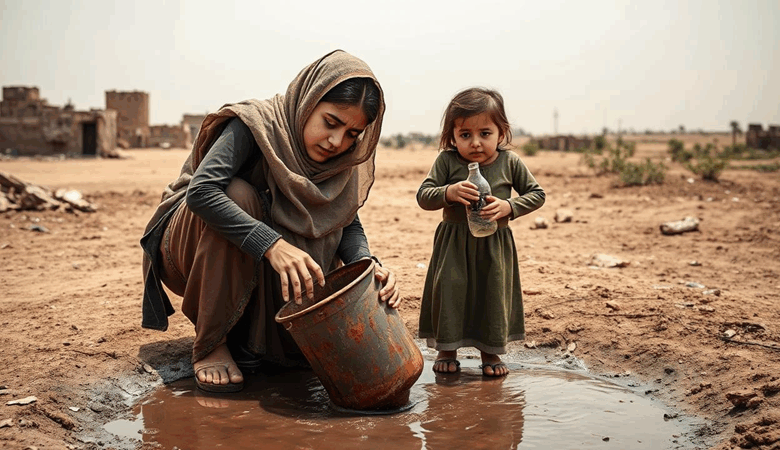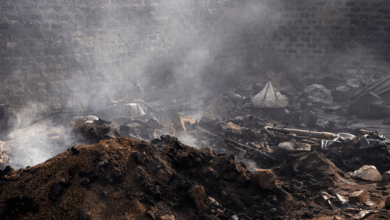Kabul Could Become the First Modern City to Run Out of Water, Warns New Report
News Mania Desk / Piyal Chatterjee / 17th June 2025

A startling new report by international aid organization Mercy Corps has sounded the alarm over the worsening water crisis in Kabul, Afghanistan, warning that the city could become the first modern metropolis to completely run out of water—as early as 2030. This looming disaster is the result of a dangerous combination of groundwater depletion, climate change, rapid urban growth, and lack of adequate infrastructure and regulation.
Over the past ten years, Kabul’s groundwater levels have dropped by 25 to 30 meters, driven by excessive and unsustainable pumping. The city’s natural water replenishment rate is being vastly outpaced, with approximately 44 million cubic meters more water being extracted each year than is replaced. As a result, nearly half of Kabul’s borewells, which provide water to most of the city’s residents, have already dried up.
To make matters worse, the remaining groundwater is often severely contaminated. Around 80% of the city’s water supply is unsafe, polluted by untreated sewage, arsenic, and high salinity. Many residents are now forced to spend up to 30% of their monthly income just to access clean water. Mercy Corps reports that nearly 68% of households are in debt due to water-related expenses, with loans often carrying exorbitant interest rates.
Kabul’s population has ballooned from less than 1 million in 2001 to over 7 million today, putting immense pressure on its already limited water infrastructure. Years of war, political instability, and international sanctions have left the Afghan government unable to invest sufficiently in public services. Out of the $264 million needed for water and sanitation projects, only $8.4 million has been secured so far. International funding, estimated at around $3 billion, remains largely frozen.
One proposed solution—a $170 million pipeline from the Panjshir River to Kabul—is already designed but awaits funding. Experts and aid organizations emphasize that immediate, large-scale investment and regulatory reforms are essential to avert a humanitarian disaster. If no action is taken, Kabul could set a grim precedent for other cities around the world facing similar environmental and governance challenges.
The report underscores a critical global message: without swift intervention, the world could witness its first modern city collapse due to complete water scarcity—a crisis not just of nature, but of policy and neglect.






